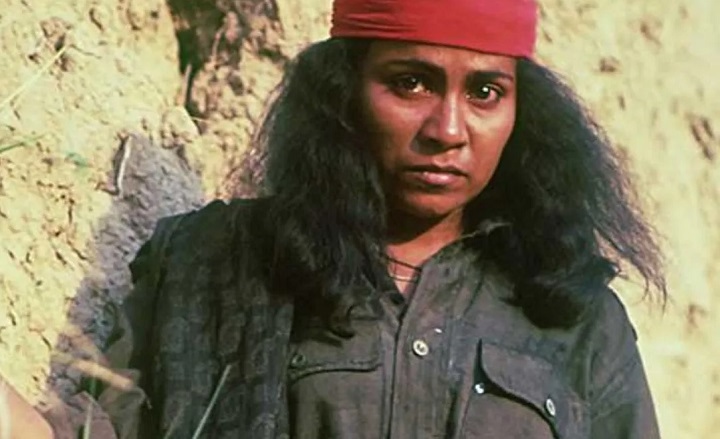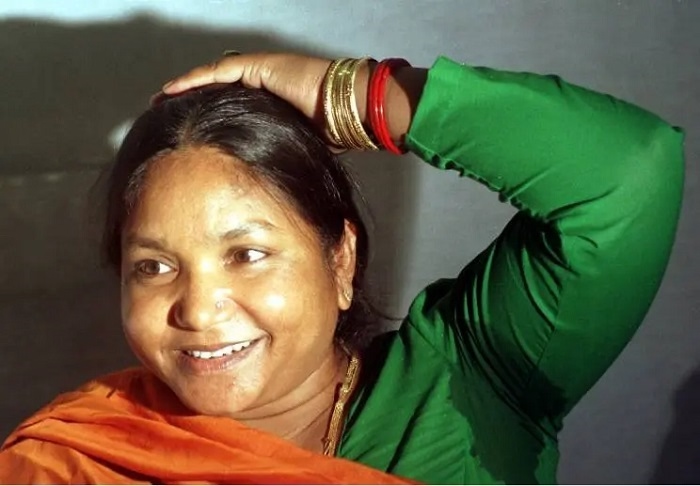Phoolan Devi, often referred to as the “Bandit Queen,” lived a life that is equal parts tragedy, defiance, and redemption. Her journey from a poor, oppressed girl in rural India to one of the most famous figures in Indian history is nothing short of remarkable. Phoolan Devi’s story is a powerful testament to the human spirit’s ability to rise above unimaginable suffering and injustice.
Early Life and Struggles
The Birth of a Rebel
Phoolan Devi was born in 1963 in the village of Ghura Ka Purwa, located in the state of Uttar Pradesh, India. Born into a lower-caste family, her early life was marked by poverty, social discrimination, and hardships. In a society where caste-based discrimination was rampant, Phoolan’s family, belonging to the Mallah caste, faced constant exploitation and injustice.
The Early Signs of Rebellion
From an early age, Phoolan showed signs of defiance against the societal structures that oppressed her. She was a bright, spirited girl who often challenged the patriarchal norms. However, like many young girls in rural India, her dreams were stifled by the traditions of forced child marriage. At the age of 11, she was married off to a much older man, a fate that was all too common for girls from her community.
The Path to Becoming a Bandit
The Inciting Incident: Humiliation and Abuse
The defining moment that led Phoolan to the world of crime was the horrific abuse she suffered at the hands of her husband and the villagers. After being married off at such a young age, Phoolan was subjected to abuse and was ruthlessly mistreated by her in-laws. Things took a violent turn when Phoolan was abducted by a group of men from the higher caste Thakur community. They kept her captive, assaulted her, and subjected her to sexual violence.
Phoolan’s life, already filled with tragedy, spiraled further when the men who had abducted her showed no remorse. It was the brutality she faced that would push her toward taking extreme measures. In an act of desperate survival, Phoolan eventually managed to escape, vowing to take revenge on those who had tormented her.
Joining the Bandits
Phoolan’s escape marked the beginning of her journey as a bandit. Initially, she joined a bandit gang led by a man named Vikram Mallah. Through her association with the gang, Phoolan learned the ways of banditry and became a feared figure in the region. She was known for her sharp intellect, bravery, and fierce determination to fight for justice.
The Rise of Phoolan Devi: Bandit Queen
The Revenge Against the Thakurs
In 1981, Phoolan Devi’s life took a dramatic turn when she led a group of bandits in a violent revenge against the Thakur community. The revenge came in the form of the infamous Behmai Massacre, where Phoolan and her gang killed 22 Thakur men, many of whom had been responsible for the abuse and humiliation she had endured. This act solidified her reputation as a fearsome leader and earned her the title of “Bandit Queen.”
The Behmai Massacre was not just an act of retaliation, but a statement against the oppression of lower castes by the dominant Thakur caste. It was a violent act, but for many in the lower-caste communities, it symbolized the moment when a long-oppressed woman stood up against centuries of injustice.
The Pursuit and Capture
Phoolan Devi’s actions soon made her a target for the police. For several years, she was on the run, leading a life of constant danger. During this time, she gained significant media attention, becoming both a symbol of rebellion and a subject of controversy. Her rise to notoriety brought her into direct conflict with both the police and political forces, who wanted to capture or eliminate her.
Despite the challenges, Phoolan’s influence continued to grow, particularly among those who saw her as a champion of the oppressed. Her story spread across India, and many saw her as a martyr for the downtrodden, while others viewed her actions as a threat to social order.
Phoolan Devi’s Transformation: From Bandit to Politician
The Surrender
In 1983, after years of being pursued by the police, Phoolan Devi finally surrendered to the authorities. The decision to surrender was influenced by various factors, including the desire to end the cycle of violence, the deteriorating health of her gang members, and a plea for mercy. Phoolan’s surrender was met with mixed reactions. While some viewed it as an act of bravery, others considered it a betrayal of the revolution she had fought for.
Phoolan was arrested and charged with numerous crimes, including murder and abduction. She spent nearly 11 years in prison, during which time she became an emblem of both defiance and remorse. Despite her criminal past, Phoolan’s story resonated with many, particularly those who saw her as a victim of social injustice.
The Political Career
After her release from prison, Phoolan Devi sought to transform her image and become a voice for the voiceless. In 1996, she entered politics as a member of the Samajwadi Party and was elected to the Indian Parliament from the Mirzapur constituency. Her entry into politics was seen as a way for her to redeem herself and advocate for the issues affecting the oppressed classes, particularly the lower castes and women.
Phoolan Devi’s political career was marked by her commitment to social justice and her efforts to fight for the rights of women and marginalized communities. She used her position to push for policies that would uplift the poor and provide opportunities for education and empowerment.
The Legacy of Phoolan Devi
A Symbol of Resistance and Empowerment
Phoolan Devi’s story is not just one of revenge and violence but also of resistance and empowerment. She became a symbol of defiance against a patriarchal and casteist society, and her life has inspired countless individuals, especially women, to stand up for their rights. While her methods were often controversial, Phoolan’s life raised critical questions about social injustice, inequality, and the treatment of women in India.
Tragic End
In 2001, Phoolan Devi was assassinated in broad daylight in New Delhi. She was shot dead by a gang of men who sought revenge for her role in the Behmai Massacre. Her death marked the end of a tumultuous and tragic journey, but it also cemented her status as an iconic figure in Indian history.
FAQs
Why is Phoolan Devi called the Bandit Queen?
Phoolan Devi earned the title “Bandit Queen” after she led a group of bandits in a violent act of revenge against the Thakur community, particularly in the Behmai Massacre.
What led Phoolan Devi to become a bandit?
Phoolan’s abusive marriage, sexual assault, and captivity at the hands of the Thakur community led her to seek revenge and eventually join a bandit gang.
How did Phoolan Devi’s life change after her surrender?
After her surrender, Phoolan Devi transformed from a feared bandit to a political figure, advocating for the rights of marginalized communities and women.
What was Phoolan Devi’s role in Indian politics?
Phoolan Devi became a member of the Indian Parliament, where she fought for social justice and the rights of the oppressed, particularly lower castes and women.
How did Phoolan Devi die?
Phoolan Devi was assassinated in 2001 in New Delhi, where she was shot by a group of men seeking revenge for the Behmai Massacre.
Phoolan Devi’s story is a complex one, marked by violence, suffering, and redemption. She was both a symbol of resistance and a controversial figure in Indian history. Her journey from a downtrodden village girl to a political figure is a testament to her resilience and determination. Phoolan Devi’s legacy continues to inspire many, particularly women who face oppression and discrimination.


